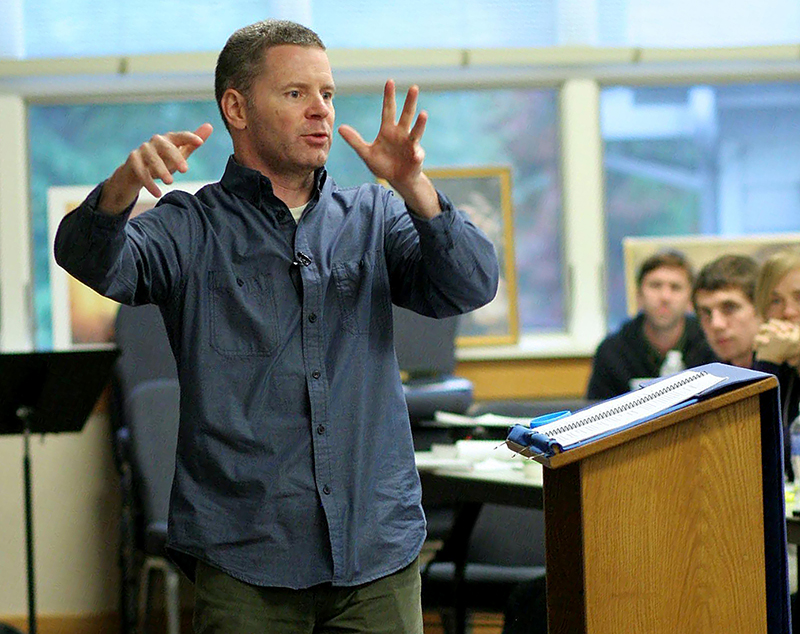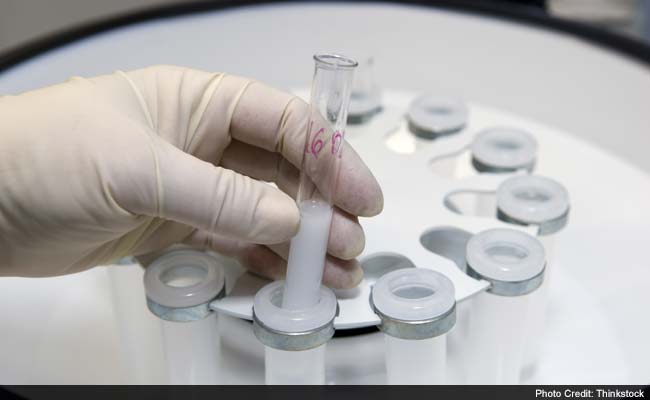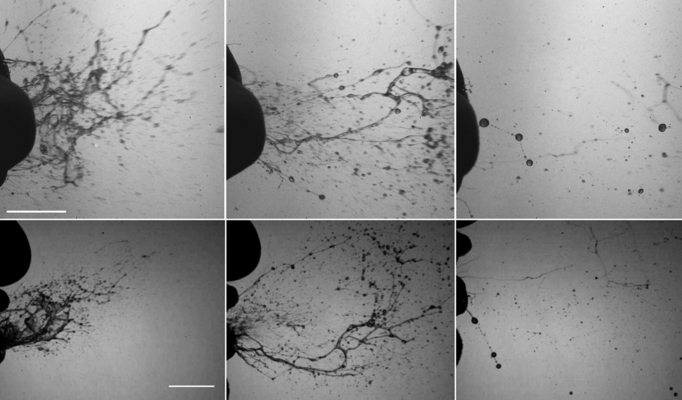
Christopher West is a theologian who has spent the past two decades as the world’s most well-known popularizer of a scholarly teaching called the “Theology of the Body.” He holds a bachelor’s degree in anthropology, a master’s degree in theology and an honorary doctorate for his theological contributions. He has since written several best-selling books and traveled the world presenting thousands of seminars. In 2004 he co-founded the Theology of the Body Institute near Philadelphia, Pa., and continues to serve on the faculty there. In 2010, he founded the membership and outreach organization The Cor Project with a global mission to help men and women around the world learn, live and share the Theology of the Body.
The South Asian News recently spoke to West to learn just what the Theology of the Body is, how he discovered it, how it responds to the many cultural issues of today, and how The Cor Project is working to address those issues.
What exactly is the “Theology of the Body” and how did you come across this?
“Theology of the Body” is the title John Paul II gave to a book he had written before becoming pope that, as pope, he divided into 129 addresses that he delivered at the Vatican between 1979 and 1984. Taken together, these addresses have been called “a theological time bomb” set to go off perhaps in the 21st century. In short, John Paul II unfolds in great detail the idea that our bodies reveal a very important, very profound, very beautiful message from God. Our bodies tell the divine love story. The sexual revolution basically said to a sexually repressed world, “Hey, let’s talk about sex.” In effect, John Paul II’s response was, “Sure.Let’s do that.But let’s not stop at the surface. Let’s have the courage to take these questions the whole way. Let’s have the courage to look at the very depths and origin of our sexual desires. Let’s have the courage to look at what the Scriptures call ‘the great mystery’ of sexuality.”
Tell us about your struggle and the foundation of the theology of the body?
I was raised on the basic message that desire was “bad” and should be repressed. Christianity, in turn, seemed like nothing but a list of rules to follow. Not surprisingly, I turned to what I call the “fast food gospel” to satisfy my hungers – the sexual revolution’s promise of immediate gratification of my desires. The chicken nuggets tasted good going down, but eventually all the grease and sodium, so to speak, caught up with me. When I was in college in the late 1980s, a ragged prayer came out of my heart, a cry into the void saying, “God, if you exist, you better show me why you gave me all these desires and what I’m supposed to do with them, because they’re getting me and everybody I know into a hell of a lot of trouble.” The answer to my prayer came as an interior call that I couldn’t ignore: “Seek and you will find…” I didn’t have much faith at the time, but I figured if the Bible was supposed to unfold God’s plan for the world, there had to be something in there about the divine plan for sex. Over a period of about three years of intense searching and study, I came to see that the Bible takes us on a journey from a wedding in the temporal paradise of Eden to a wedding in the eternal paradise of heaven. I came to see that the prophets use some bold sexual imagery in describing divine love (e.g., Ezek 16:7–8), that the erotic love poetry of the Song of Songs – which just so happens to be right in the center of the Bible – was a window into the things of heaven, and that the sexual union of husband and wife was a “great mystery” that revealed Christ’s love for his Bride, the Church which is not bricks and mortar but actual flesh and blood. We are the Church.
The spousal imagery of the Scriptures was bringing to life the dry doctrine I had learned growing up and was shedding a bright light on the entire biblical story. Discovering this set me on fire! Expecting an enthusiastic response from other Christians I knew, I was surprised to be met with blank stares or worse when I tried to explain how the union of man and woman was like a key that unlocked heavenly mysteries. Then, in September of 1993, a fateful meeting with my sister’s high school theology teacher literally changed the course of my life. Testing some of my “spousal” reading of the Bible on her, she responded with, “You must have read John Paul II’s Theology of the Body.” She assumed I had already read it and said I was talking just like John Paul II. I could hardly believe my ears.
Reading his Theology of the Body for the first time, I not only found confirmation that I wasn’t crazy; his insights took me to an entirely new level. I sensed I was holding the answer to the crisis of modern times in my hands and I knew then that I would spend the rest of my life studying his teaching and sharing it with others. That was the start of my life’s work as a “theologian of the body.”
How would you describe this “crisis of modern times”?
At its root I’d describe it as a rupture between body and soul, a rupture between the physical and the spiritual, sexuality and spirituality. And we see this rupture played out in both the secular world and among people of faith. Among the latter, we often encounter a mentality that divorces the spiritual from the physical, while in the secular world we often encounter a mentality that divorces the physical from the spiritual. But when people of faith say, “Keep your sexuality away from my spirituality,” the secular world will very happily say, “Keep your spirituality away from my sexuality.” I would argue that, while both mentalities are trying to safeguard something true about our humanity, in the end, both approaches are lethal.Indeed, there’s a word for the separation of body and soul. It’s called death.
The Theology of the Body presents a serious challenge to both of these mentalities. It calls for an integration – a deep, profound union of spirituality and sexuality that grounds the spiritual in the flesh while at the same time raising the flesh to the heights of the human spirit, thus ennobling sexuality by imbuing it with authentic freedom and authentic love.
This is another way to characterize the crisis of our times: it’s a crisis of freedom and a crisis of love. We don’t even know what these terms mean any more, because we’ve substituted authentic freedom and love with things that are, in fact, their opposite. The opposite of love is to use a person as a means to my own selfish end. We do this all the time in our culture, it’s what we’re encouraged to do – treat one another as objects for sexual consumption. We do not love one another when we do this. We’re doing the opposite: using one another. And why do we use one another rather than love one another? I think it’s because we’re not sexually free. Our culture raises high the banner of sexual liberation, but what does the secular world mean by it? It means do whatever you want, whenever you want, without ever saying no. Is such a person free?
Men look at sex in a different way, so do women, what do you have to say about this?
I never tire of asking women in my audiences, “How many of you want to be romantically involved with a man who cannot say no to his sexual desires?” I’ve asked hundreds of thousands of women that question and never has a hand gone up. Women seem to intuit this better than men for some reason – that if we can’t say no to our sexual desires, our yes means nothing. I would argue that authentic sexual liberation is not freedom to indulge my compulsions without restraint; rather, it’s freedom from the restraint that my compulsions to indulge place on me. Only such a person who is free from compulsion is able to direct sexual energy and desire toward the dignity of a love worthy of the name. We could put it this way: if we are not in control of our sexual desires, we will inevitably seek to control others in order to gratify them. That’s not love. That’s use. That’s not sexual freedom. That’s sexual tyranny.
I believe that deep in our hearts, even if we’re often inclined to settle for counterfeit freedom and counterfeit love, we still desire the real things – regardless of where they’ve been, regardless of how they’ve lived – to find authentic freedom and authentic love through a healing integration of spirituality and sexuality. I learned from this crazy Polish saint that Christianity is not a “starvation diet,” it’s an invitation to an Infinite banquet of love. Based on all I’ve learned from this Theology of the Body, I like to say that God gave us sexual desire to be like the fuel of a rocket that’s meant to launch us toward the stars, to “infinity and beyond.” The problem is our rocket engines have become inverted. That’s why so often we go seeking love, we go seeking happiness, but it all backfires on us.
Tell us more about The Cor Project.
Cor is Latin for “heart.”Questions of sexuality take us to the very heart of our humanity. I look out at the world and I see people hurting. I once heard it said, and it resonated with me deeply, that behind the eyes of everyone you meet is a story that, if you heard it, it would make you weep. The Cor Project wants to speak hope and healing into people’s stories. Through live events, books, audio and video resources, daily conversation on social media, frequent blogging on our website, and our Membership program, we’re trying to show men and women around the world how beautiful they truly are.
West, along with musicians Mike Mangione and Jason Clark, will present The Cor Project’s premiere event, the “Cor Seminar,” twice in the Toronto area this weekend — Sept. 17 at Mississauga at Anapilis Hall, 2185 Stavebank Road, Mississauga and Sept. 18 at Gethsemane Centre, Wellandport. The events are free and will take a fresh look at many of today’s hot cultural issues in the areas of sexuality, marriage and family as seen through the lens of this “Theology of the Body.”
Jude Paul Fernandes / jude@thesouthasiannews.com


 South Asian News E-Paper
South Asian News E-Paper Punjabi News E-Paper
Punjabi News E-Paper

















